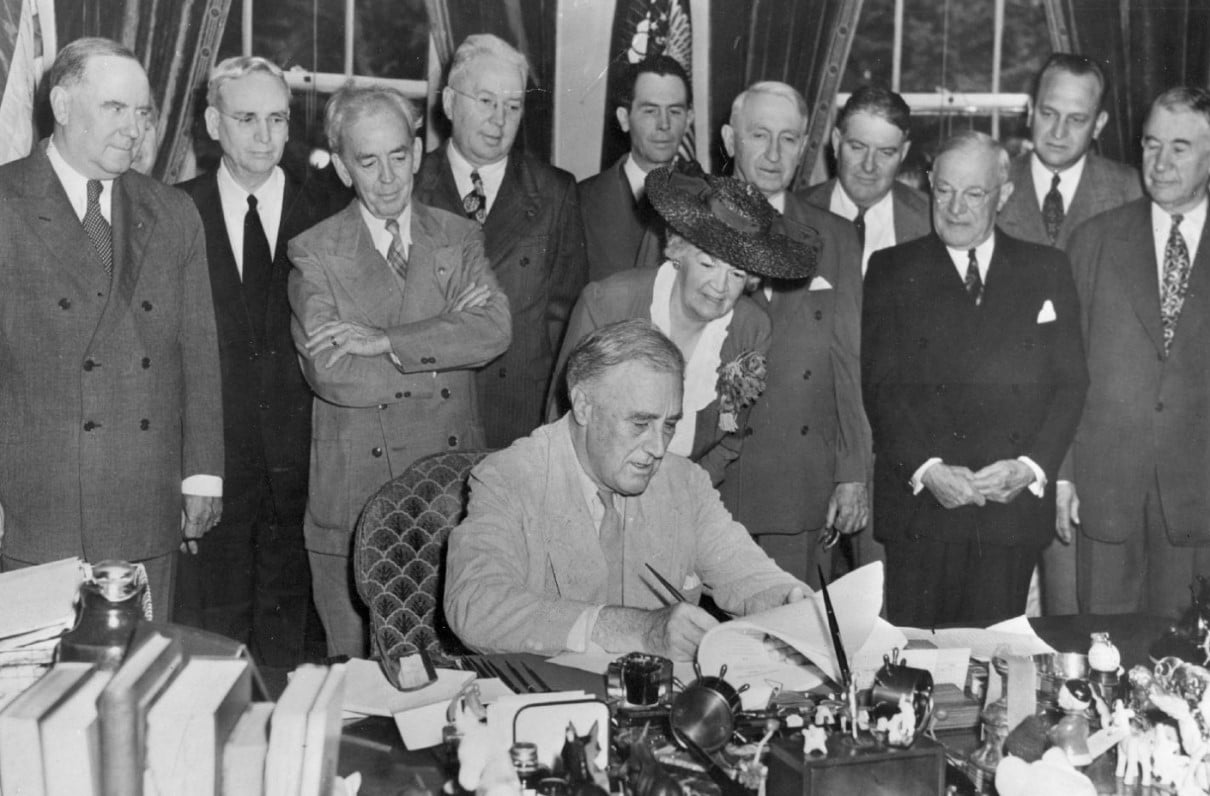This article by Richard Sisk originally appeared on Military.com, the premier resource for the military and veteran community.
In marking the 75th anniversary of the original GI Bill, a top Department of Veterans Affairs official on June 19 pointed to a glaring difference between the post-World War II and post-9/11 versions -- the small-business option.
Paul Lawrence, head of the Veterans Benefit Administration, said, "One of the things I get asked about wherever I go is: 'Why can't I use the GI Bill to start a business? Why can't I do that?'"
"It once was in the bill" signed on June 22, 1944, by President Franklin D. Roosevelt in the form of a small loan as startup capital, Lawrence said at a forum sponsored by the U.S. Chamber of Commerce celebrating the 75th anniversary of what was formally called the "Servicemen's Readjustment Act."
[RELATED: MOAA's GI Bill Page]
Lawrence, an Army veteran and the main administrator of the current GI Bill, noted that previous forum panelists from the business community, government and veterans advocacy groups had said that "half of all the World War II veterans started a business. And now it's a much smaller fraction."
"The law in 1944 enabled it," he said of the small-business opportunity for veterans. "It once existed, and it begs the question: If it was so popular, why can't we do it? Certainly, we could figure this out.
"I'm just sharing, I'm not advocating for anything, but it's what I get asked about regularly," Lawrence said in his remarks at the forum and in an earlier aside with Military.com.
Previous efforts in Congress to expand benefits under the current GI Bill to allow veterans to use education funds for small-business startups have died in committee.
[RELATED: 5 Things You Should Know About the Forever GI Bill]
An earlier panel at the Chamber of Commerce forum stressed that the current GI Bill has primarily become an education benefit, and contrasted the large number of post-World War II veterans who chose a business opportunity over college and the relatively small number in the current generation who take that path.
Elizabeth O'Brien, chairwoman of the Small Business Administration advisory committee on veterans business affairs, and former Rep. Patrick Murphy, D-Pennsylvania, the former undersecretary of the Army, said that access to capital is a major hurdle for veterans in starting their own businesses.
They said that 50% of post-World War II veterans went directly into business when they came home, compared to about 5% in the current generation.
"That's an unbelievable dip" from 75 years ago to the present, O'Brien said.
"Less than 5% of veterans starting their own businesses. That's not good," Murphy said.
[RELATED: Cockpit to Candy: How This Marine Pilot Became a Chocolatier]
In her presentation at the forum, Rosalinda Maury, director of applied research at Syracuse University's Institute for Veterans and Military Families, detailed the immense contribution to the nation that WWII veterans made with the education they gained through the original GI Bill.
She called FDR's foresight in pressing for the bill before the war ended "the single largest investment in an educated workforce in American history."
For every dollar spent on their education, the post-WWII veterans returned seven to the economy, she said.
From the original bill, the nation gained 450,000 engineers, 238,000 teachers, 67,000 doctors, and 91,000 scientists, according to Maury.
Other articles by Military.com:
One Person's PTSD Can Affect a Whole Family
Coast Guard Stages Massive Rescue Exercise in Waters Off Washington, DC
10 Hollywood Tough Guys Who Studied on the GI Bill



